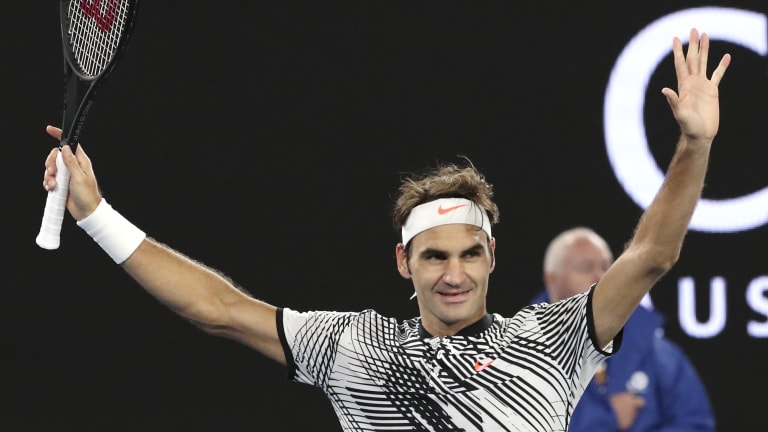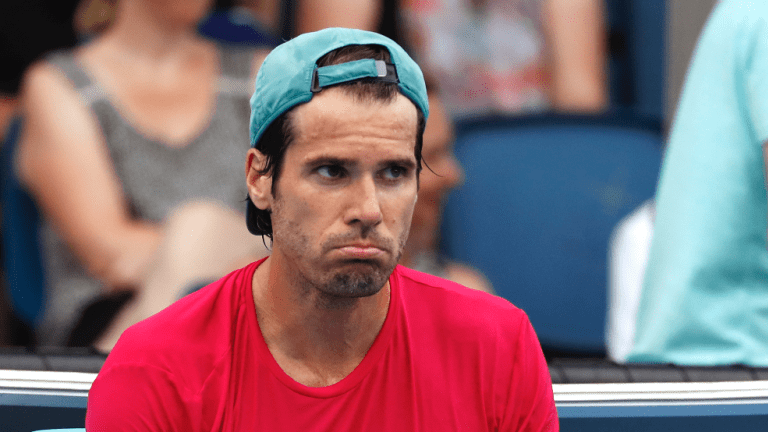No seriously, we're actually starting a boyband: The one handed #BackhandBoys 🎤🎹🎼@GrigorDimitrov @TommyHaas13 @officialdfoster @DjokerNole pic.twitter.com/DtTSu39KIM
— Roger Federer (@rogerfederer) March 17, 2017
Joel Drucker decodes the One-Handed Backhand Boys
By Mar 23, 2017The Business of Tennis
Jannik Sinner surpasses 50 million dollars in career prize money after winning Vienna
By Oct 27, 2025Your Game
Tecnifibre releases special-edition Danille Collins pickleball paddle
By Oct 04, 2025Style Points
Spotted: Carlos Alcaraz checks out Roger Federer’s ultra-rare Rolex at Laver Cup
By Sep 24, 2025Your Game
Racquet Preview: Solinco unveils Blackout V2
By Sep 24, 2025Player News
Elina Svitolina shuts down 2025 season “to heal and recharge”
By Sep 23, 2025Your Game
Geared Up: Victoria Mboko is turning heads in all Wilson
By Sep 23, 2025Lifestyle
Victoria Mboko: 'Legacy in motion' captured in Rolling Stone Africa cover story
By Sep 22, 2025Social
Introvert King Taylor Fritz sends cat memes at the club after Laver Cup victory
By Sep 22, 2025Player News
Beatriz Haddad Maia ends season to focus on health: "The best is yet to come"
By Sep 22, 2025Joel Drucker decodes the One-Handed Backhand Boys
Federer, Haas and Dimitrov have made quite a splash in the music
Published Mar 23, 2017
Advertising

Joel Drucker decodes the One-Handed Backhand Boys
© AP
Advertising
Advertising

Joel Drucker decodes the One-Handed Backhand Boys